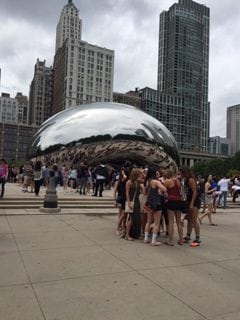Focus Scripture – Psalm 23:1-3
Reflections on Today’s Word
As the psalmist states, the Lord is our shepherd who guides us down the paths of righteousness for the sake of the Beloved. If we listen carefully, the shepherd’s voice will lead us over mountains, through valleys, and across rough terrain. All for the sake of love – a critical variable in the equation of right relationships. There’s something about equations — they tend to need balance.
Did you know that love is positively correlated with a whole range of other virtues? The greater the love, the greater the peace. The greater the love, the greater the hope. The greater the love, the greater the justice. When Love, Peace, Hope, and Justice exist in right relationship with one another, we have arrived at a place of righteousness.
But wait! It is true; these variables contribute to Righteousness, but they don’t make up the whole of it. You see, the equation is not yet balanced unless we add Grace as the unknown variable. Grace accounts for all the things we cannot know. Our troubled waters become still. Our bodies are refreshed. Our souls are restored. We thrive in the presence of Love. And Justice becomes a real possibility.
When the unknowns are accounted for by Grace, we can dwell in a state of wholeness and balance forever.
Prayer Response
God, thank you for leading us down paths of righteousness because you love us. Thank you for balancing life’s equations with your Grace. Amen.


